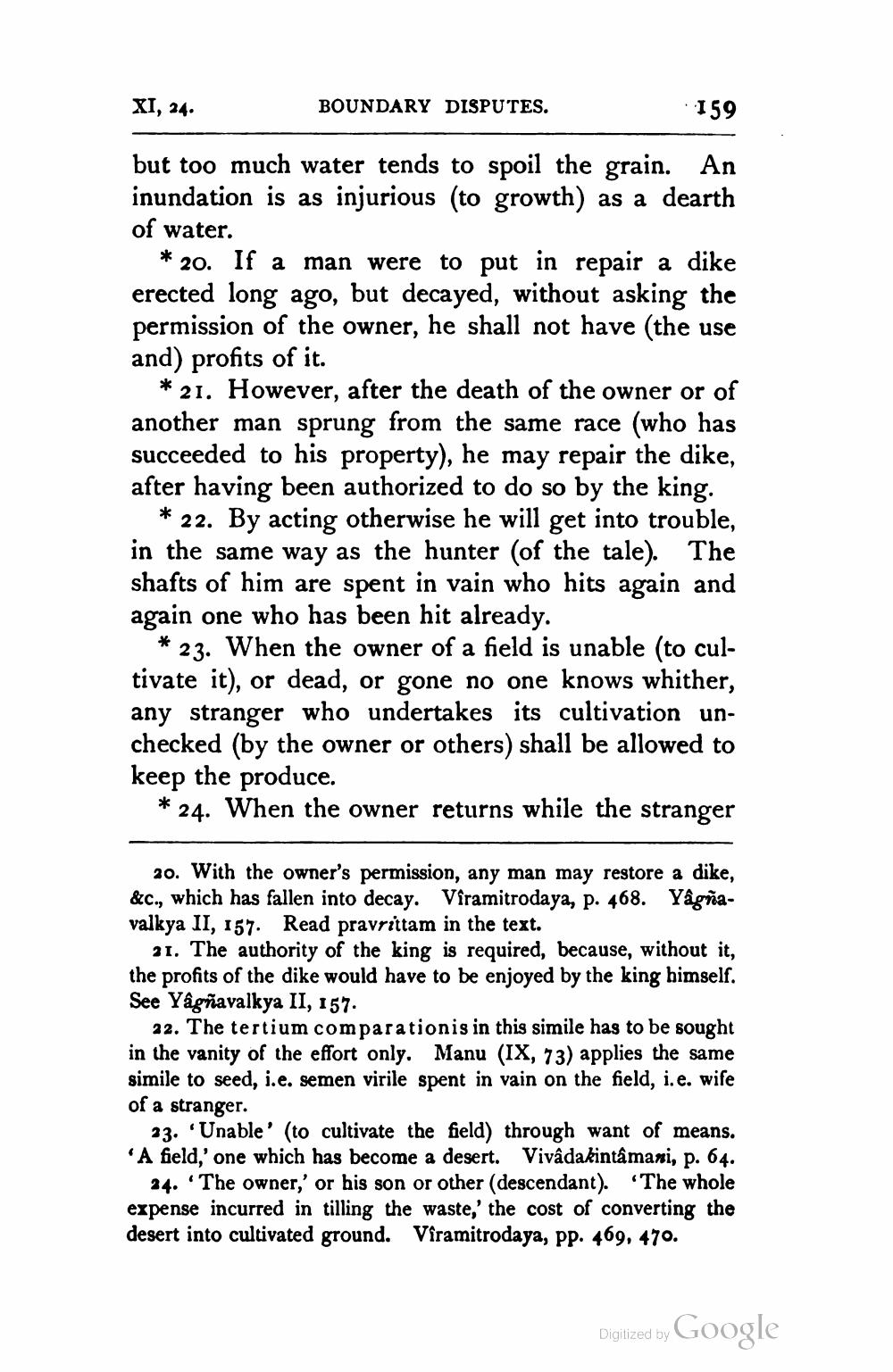________________
XI, 24.
BOUNDARY DISPUTES.
159
but too much water tends to spoil the grain. An inundation is as injurious (to growth) as a dearth of water.
* 20. If a man were to put in repair a dike erected long ago, but decayed, without asking the permission of the owner, he shall not have (the use and) profits of it.
* 21. However, after the death of the owner or of another man sprung from the same race (who has succeeded to his property), he may repair the dike, after having been authorized to do so by the king.
* 22. By acting otherwise he will get into trouble, in the same way as the hunter (of the tale). The shafts of him are spent in vain who hits again and again one who has been hit already.
* 23. When the owner of a field is unable (to cultivate it), or dead, or gone no one knows whither, any stranger who undertakes its cultivation unchecked (by the owner or others) shall be allowed to keep the produce.
* 24. When the owner returns while the stranger
20. With the owner's permission, any man may restore a dike, &c., which has fallen into decay. Viramitrodaya, p. 468. Yagñavalkya II, 157. Read pravrittam in the text.
21. The authority of the king is required, because, without it, the profits of the dike would have to be enjoyed by the king himself. See Yågñavalkya II, 157.
22. The tertium comparationis in this simile has to be sought in the vanity of the effort only. Manu (IX, 73) applies the same simile to seed, i.e. semen virile spent in vain on the field, i.e. wife of a stranger.
33. Unable' (to cultivate the field) through want of means. A field,' one which has become a desert. Vivâdakintamani, p. 64.
34. "The owner,' or his son or other (descendant). "The whole expense incurred in tilling the waste,' the cost of converting the desert into cultivated ground. Viramitrodaya, pp. 469, 470.
Digitized by Google




